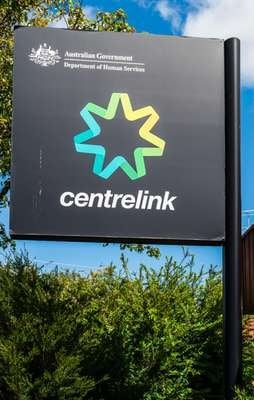'Trapped in poverty'? New statistics reveal grim picture for Centrelink users
By
Danielle F.
- Replies 95
In a country as prosperous as Australia, it's a harsh reality that some of our fellow citizens struggle to make ends meet.
The latest findings from Anglicare Australia's 2024 cost of living index painted a grim picture for families and individuals relying on Centrelink payments.
The report's analysis prompted urgent calls for the government to increase JobSeeker payments and other income support forms, as the current Centrelink rates are insufficient to cover necessities.
The analysis compared essentials—rent, food, and transport—with Centrelink's current income support rates.
The results are alarming: a family of four, with both parents on JobSeeker, would fall short by $17—which may force some to live in unsuitable accommodation and cut back on essential household expenses.
The situation is slightly better for a single parent on the Parenting Payment, for they will have an extra $24 after covering rent, transport, and food—roughly $3 per day for additional expenses.
Meanwhile, a JobSeeker recipient sharing accommodation would have $18 left each day.
However, the report highlighted that this amount is insufficient to help them move into a rental on their own.
The housing market further exacerbates the cost-of-living crisis, as average rent costs have surged by more than 50 per cent since 2020.
The steep increase in housing costs made it difficult for those reliant on Centrelink payments to secure accommodation.
Anglicare Australia's Executive Director Kasy Chambers expressed concern, stating that it has 'never been harder to live on JobSeeker and other Centrelink payments'.
'That's why Anglicare Australia has been calling for years for the government to raise the rate of Centrelink payments above the poverty line,' Chambers said.
'These payments have been too low for too long, trapping people in poverty instead of helping them escape it.'
As Centrelink payments do not cover basic costs, individuals and families skip meals, forgo necessary medical care, and cram into overcrowded homes.
Some are pushed into debt cycles as they struggle to keep up with rising costs.
Anglicare Australia is not alone in its call for action.
Social justice and welfare advocates also agree on this and urged the government to raise the rate of Centrelink payments above the poverty line.
'These numbers show us that Australians doing it tough need real action and leadership. That means raising the rate of Centrelink payments, ending unlimited increases, and building more social housing,' Chambers stated.
'We must raise the rate of these payments. Without action, people will be pushed even deeper into hardship, poverty and homelessness.'
These measures are not just about providing financial relief; they are about upholding every Australian's dignity and ensuring everyone has the opportunity to live a stable and secure life.

How did Centrelink payments impact your life or the lives of your loved ones? What changes would you like to see in your payments? We invite you to share your thoughts and insights in the comments below.
The latest findings from Anglicare Australia's 2024 cost of living index painted a grim picture for families and individuals relying on Centrelink payments.
The report's analysis prompted urgent calls for the government to increase JobSeeker payments and other income support forms, as the current Centrelink rates are insufficient to cover necessities.
The analysis compared essentials—rent, food, and transport—with Centrelink's current income support rates.
The results are alarming: a family of four, with both parents on JobSeeker, would fall short by $17—which may force some to live in unsuitable accommodation and cut back on essential household expenses.
The situation is slightly better for a single parent on the Parenting Payment, for they will have an extra $24 after covering rent, transport, and food—roughly $3 per day for additional expenses.
Meanwhile, a JobSeeker recipient sharing accommodation would have $18 left each day.
However, the report highlighted that this amount is insufficient to help them move into a rental on their own.
The housing market further exacerbates the cost-of-living crisis, as average rent costs have surged by more than 50 per cent since 2020.
The steep increase in housing costs made it difficult for those reliant on Centrelink payments to secure accommodation.
Anglicare Australia's Executive Director Kasy Chambers expressed concern, stating that it has 'never been harder to live on JobSeeker and other Centrelink payments'.
'That's why Anglicare Australia has been calling for years for the government to raise the rate of Centrelink payments above the poverty line,' Chambers said.
'These payments have been too low for too long, trapping people in poverty instead of helping them escape it.'
As Centrelink payments do not cover basic costs, individuals and families skip meals, forgo necessary medical care, and cram into overcrowded homes.
Some are pushed into debt cycles as they struggle to keep up with rising costs.
Anglicare Australia is not alone in its call for action.
Social justice and welfare advocates also agree on this and urged the government to raise the rate of Centrelink payments above the poverty line.
'These numbers show us that Australians doing it tough need real action and leadership. That means raising the rate of Centrelink payments, ending unlimited increases, and building more social housing,' Chambers stated.
'We must raise the rate of these payments. Without action, people will be pushed even deeper into hardship, poverty and homelessness.'
These measures are not just about providing financial relief; they are about upholding every Australian's dignity and ensuring everyone has the opportunity to live a stable and secure life.
Key Takeaways
- Anglicare Australia's analysis indicates that families receiving Centrelink payments, such as JobSeeker, are struggling to afford essentials like rent, food, and transport.
- A family of four with both parents on JobSeeker cannot meet these essential costs, falling short by $17, leading to unsuitable living conditions and insufficient food.
- A single parent on the Parenting Payment would have only about $3 per day left after covering the cost of rent, transport and food, while JobSeeker recipients living in a shared house may have financial leeway.
- Anglicare Australia urged the government to raise the Centrelink payments above the poverty line to prevent people from being trapped in poverty, debt, malnutrition, and housing stress.









